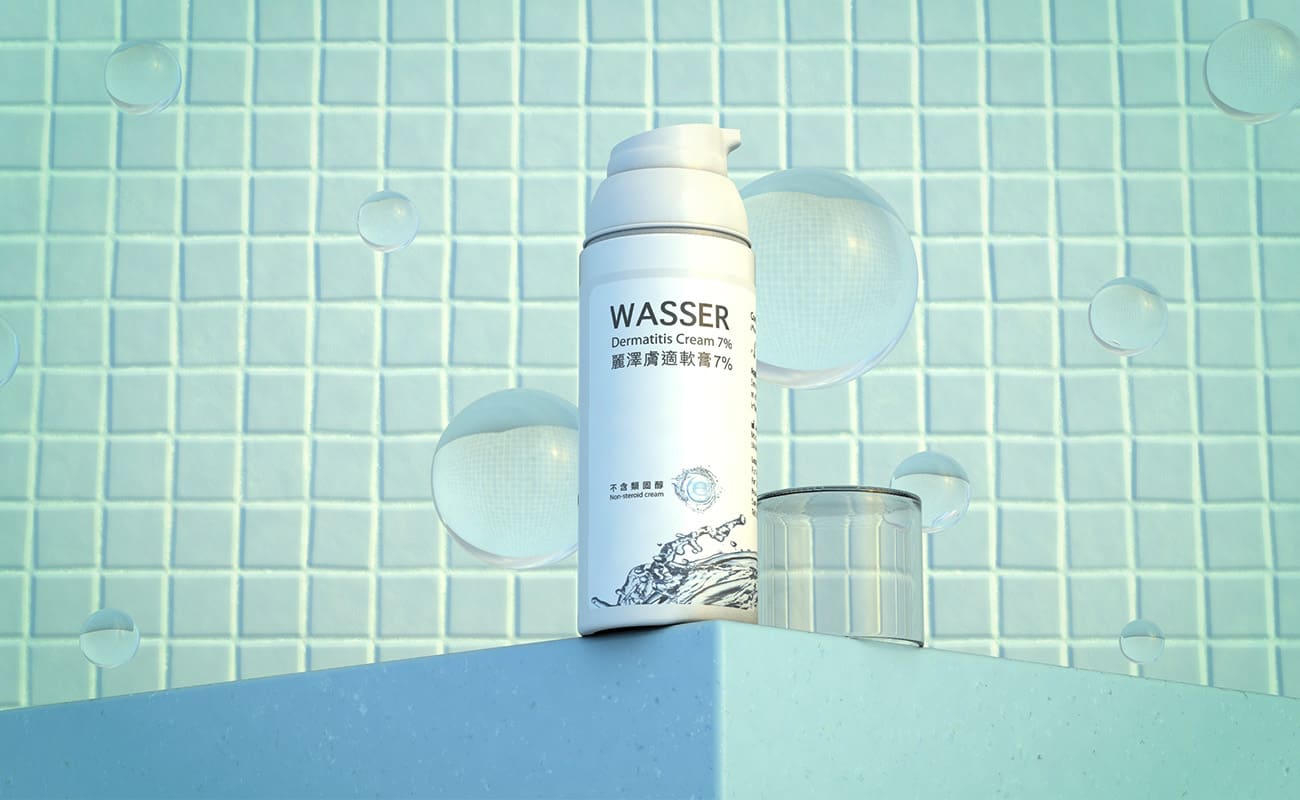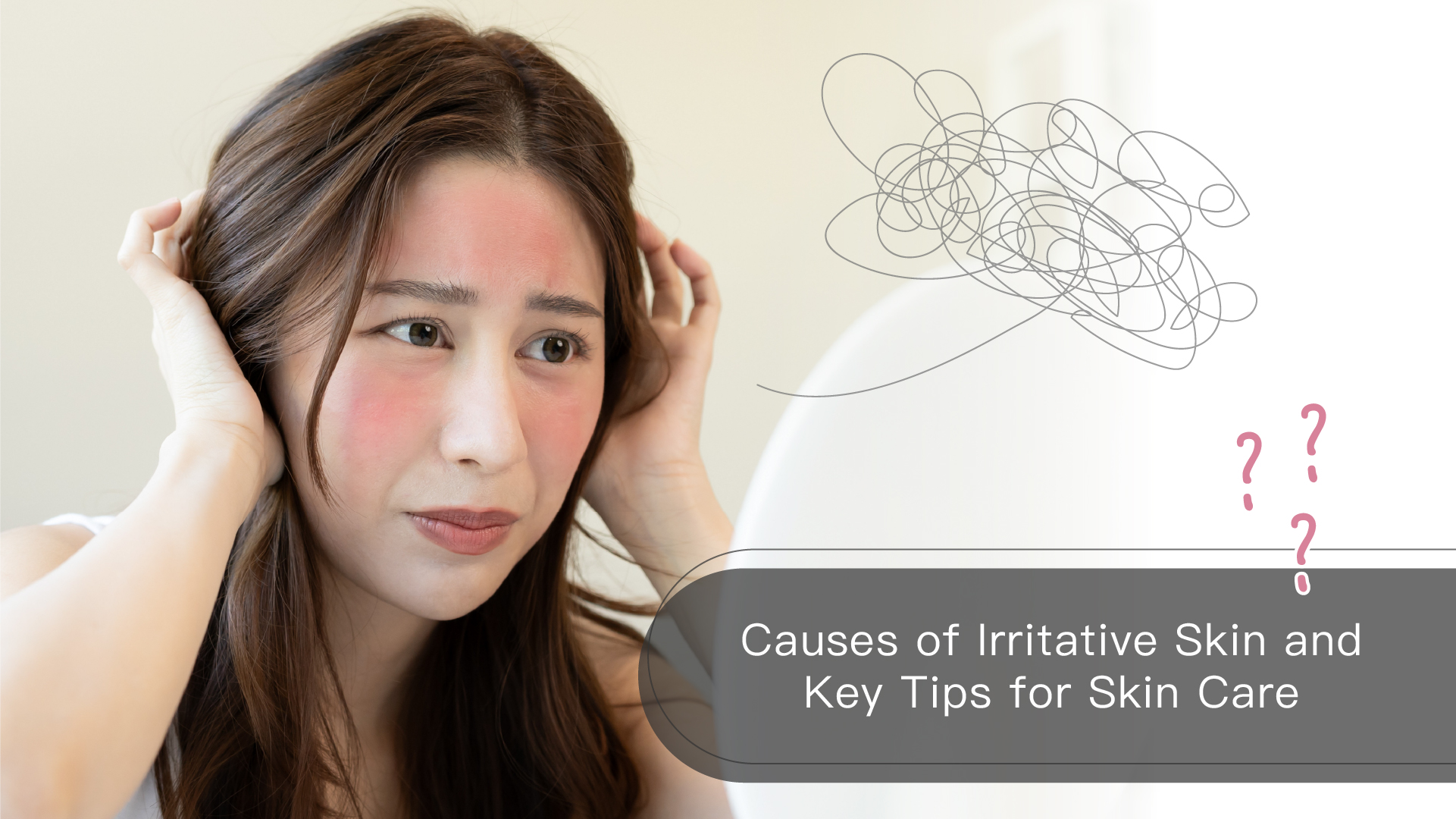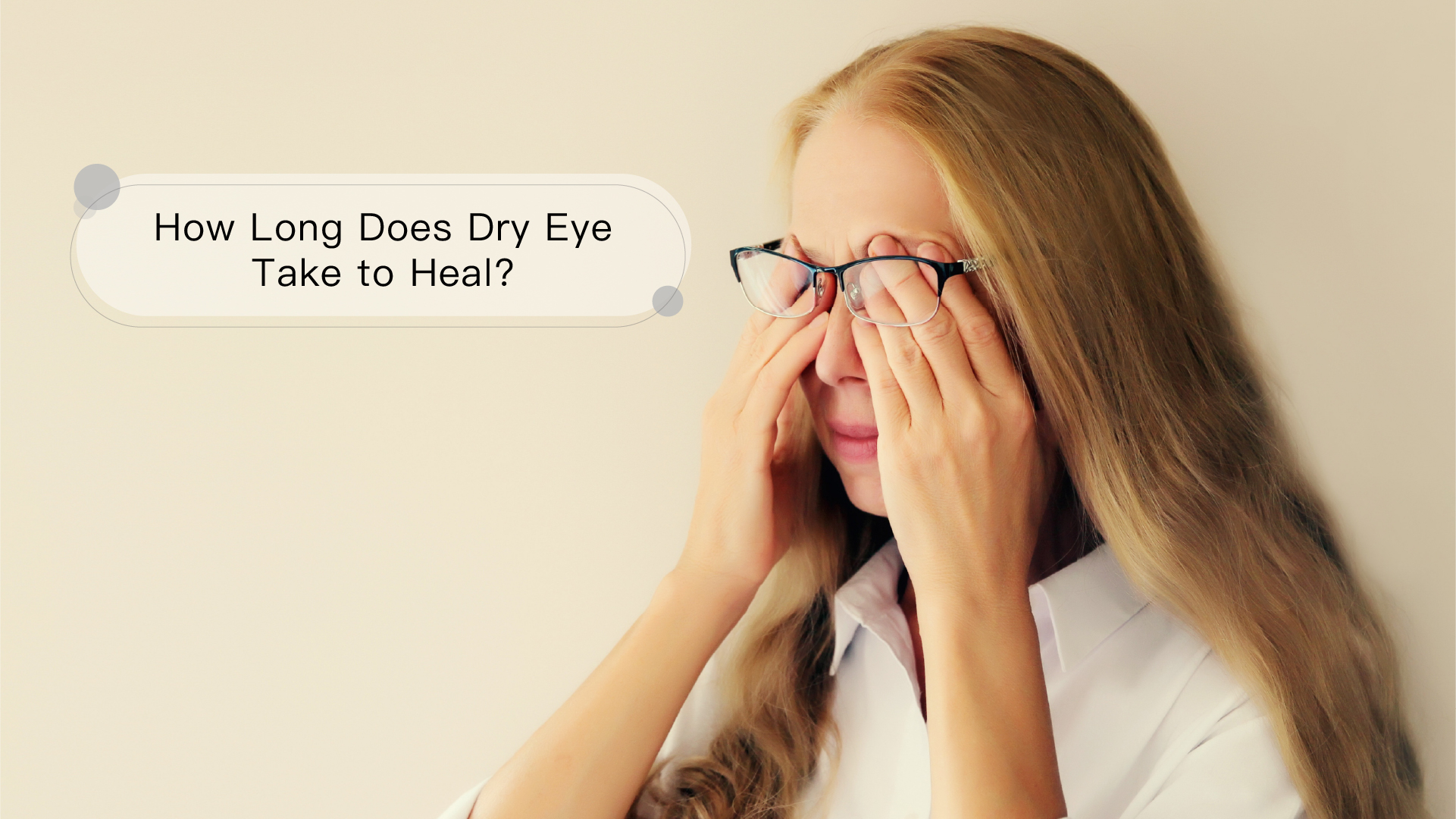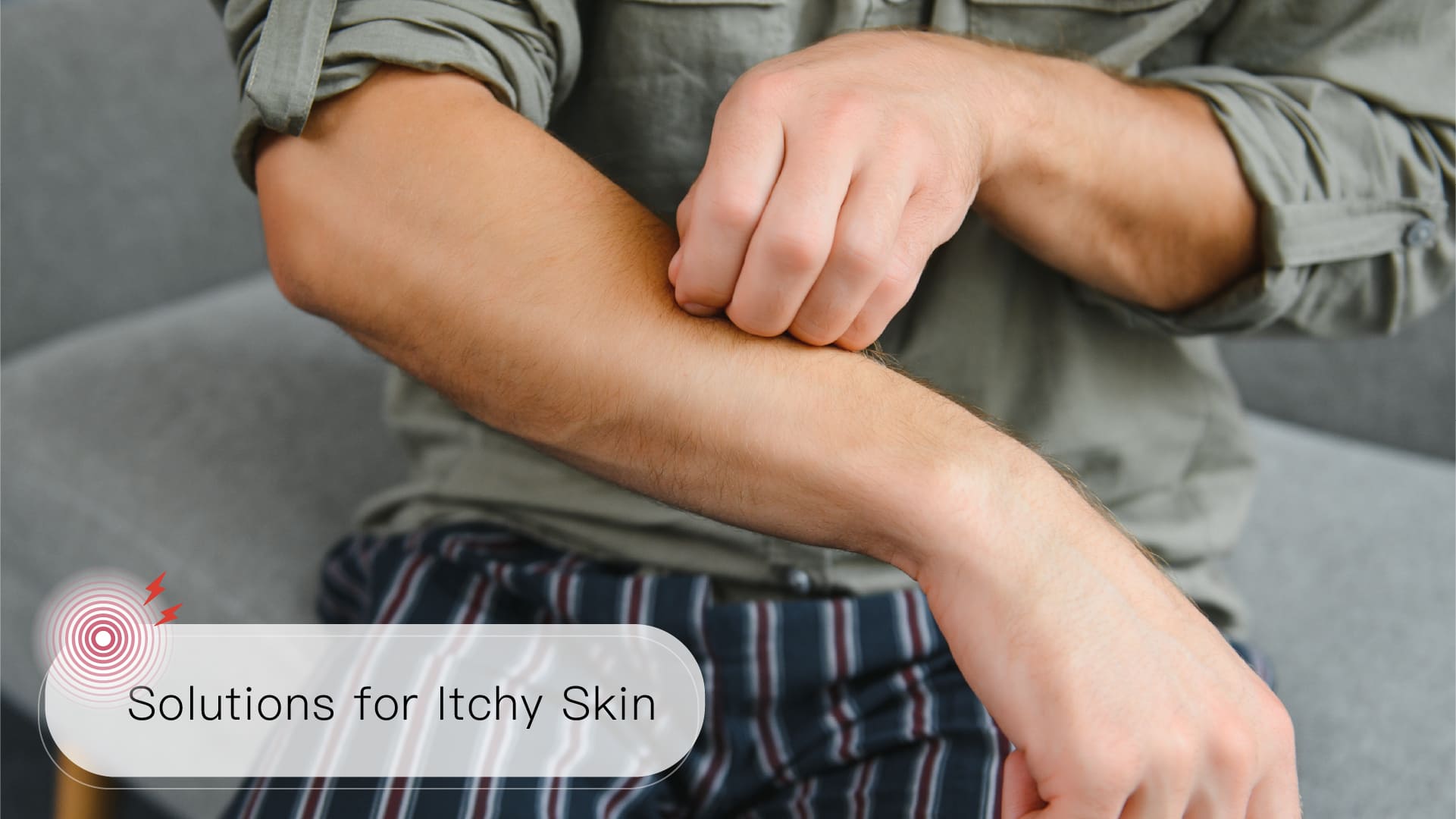Symptoms of Irritative Skin :
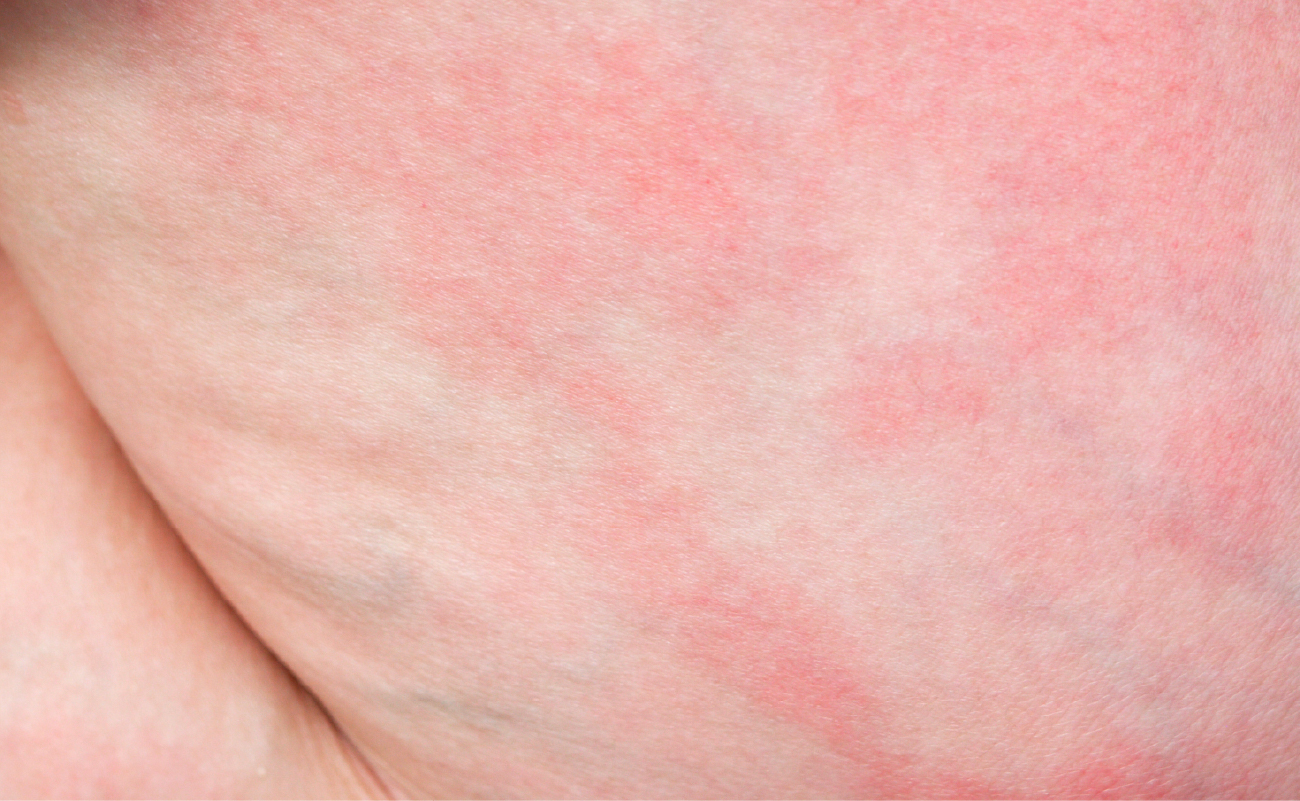
In 2017, the International Forum for the Study of Itch (IFSI) defined sensitive skin as “Sensitive Skin Syndrome (SSS),” where the skin reacts to typically non-irritating factors, causing discomfort such as stinging, burning, pain, itching, and a feeling like ant bites. Sensitive skin can affect all body parts, with widespread facial skin sensitivity.
Symptoms of Irritative Skin at Different Stages:
- Early Phase of Skin Sensitivity: Common symptoms include dry, tight, and red skin. Red, hot, painful, and itchy rashes, red spots, and even blisters may appear in severe cases.
- Acute Phase: Wounds may exude fluid, and recurrent inflammation, redness, and cracking can trigger eczema (allergen infection).
- Later Phase of Skin Sensitivity: This can develop into chronic eczema, leading to thickened stratum corneum, darker skin color, dry, cracked, and peeling skin, and extensive flaking, itching, and burning sensations, potentially causing skin pain.
Causes of Irritative Skin:

Sensitivity Cause 1: Damaged Skin Barrier, Decreased Protective Function
Due to congenital skin structure issues, sensitive patients’ outer layer of skin cells (skin barrier) is more prone to shedding, decreasing natural protection. The health of the skin barrier highly depends on lipid components. Dry skin leads to decreased neutral lipids, ceramides, and sphingolipids. When the skin defense is damaged, the permeability of the stratum corneum increases, allowing bacteria, irritants, and allergens to penetrate more easily. Additionally, patients are more prone to losing moisture on the skin’s surface, resulting in dryness and even cracking.
Sensitivity Cause 2: Environmental Factors: Seasonal Changes, Air Pollution, UV Radiation
Many people experience facial skin sensitivity during seasonal changes. Skin can quickly become unstable in Hong Kong’s constantly humid and unpredictable weather. Under such conditions, skin experiences water-oil imbalance, leading to redness, rashes, cracking, and small bumps, triggering seasonal skin sensitivity.
According to research, particles causing air pollution can make the epidermal nerves of the skin abnormally sensitive, triggering an allergic reaction that causes itching.
Furthermore, atopy patients may develop red and itchy reactions when exposed to sunlight. Hot weather and intense UV radiation can induce skin allergies, causing redness, swelling, itching, dense small papules, and red spots.
Sensitivity Cause 3: Allergens: Bacteria, Dust Mites
There are many types of allergens, such as animal dander and pollen, but the main allergens causing facial skin sensitivity are dust mites and bacteria. Dust mites stimulate the skin’s immune system, causing an allergic antibody reaction and inflammation. Additionally, enzymes in dust mite feces can easily penetrate the skin’s surface, causing sensitivity. Similarly, bacterial infections can irritate the skin, causing allergic reactions such as redness, swelling, pain, and distension.
Sensitivity Cause 4: Cosmetic Products
Many cosmetics contain irritating and chemical components, such as silicone, paraffin, film-forming agents, artificial colors, and fragrances. These components burden the skin, stimulating skin cells to produce antibodies and causing allergic reactions. This can lead to facial skin sensitivity, red rashes, or red spots.
Sensitivity Cause 5: Personal Cleansing Products
Long-term use of highly concentrated and allergenic preservatives in cleaning products can increase the risk of skin sensitivity or dermatitis. Preservatives, fragrances, cationic surfactants, antibacterial agents, solvents, or surfactants can damage the skin barrier in household cleaning products. Severe cases can lead to red rashes and red spots on the skin.
Identifying 5 Symptoms of Irritative Skin:
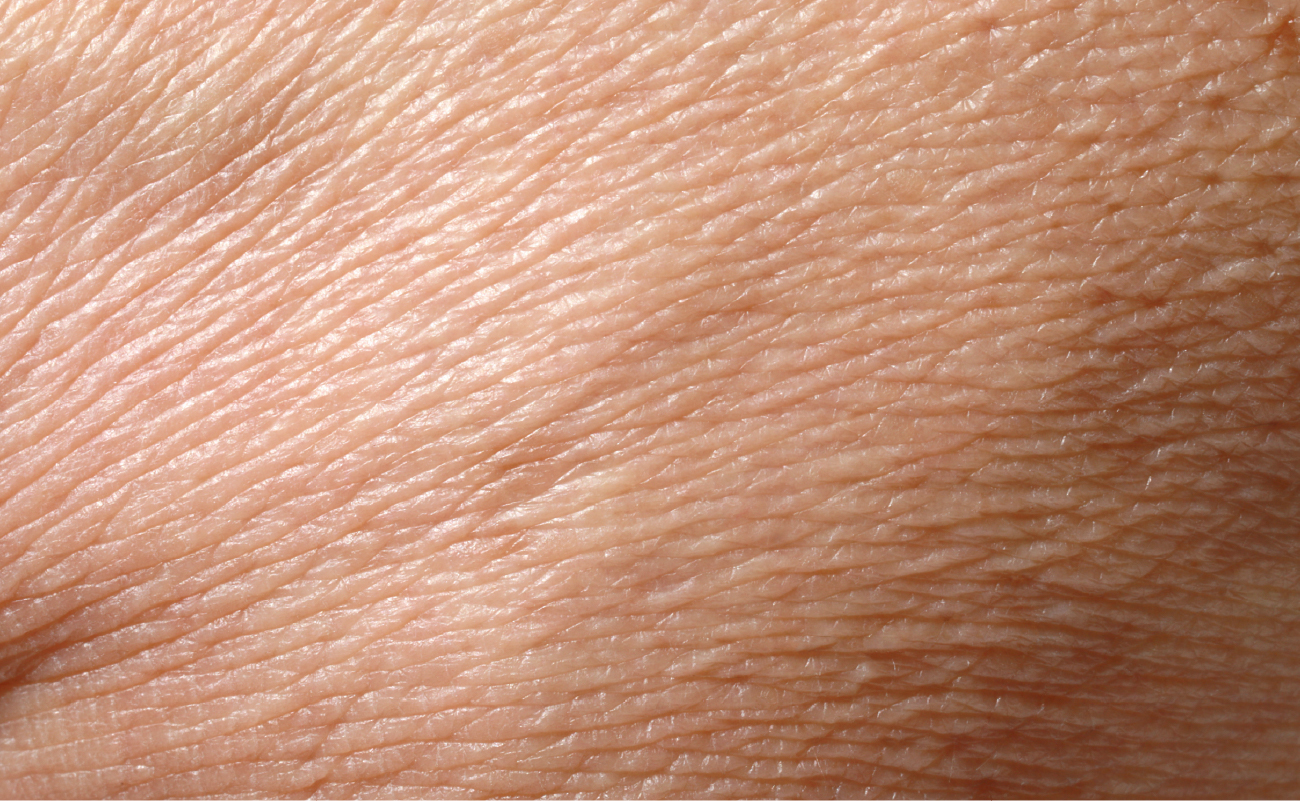
1. Weaken Skin Barrier:
People with skin sensitivities often have a thinner or damaged barrier layer that allows irritants to penetrate and moisture to be quickly lost. You are not likely to see this, but you will feel it. If you are prone to discomfort, like stinging or burning sensations, when using products not designed for sensitive skin, you may have a damaged or fragile skin barrier.
2. Irritation:
Redness, itching, burning, stinging – sensitive skin can be prone to unpleasant sensations. Irritation is one of the most frequently reported and bothersome signs of sensitive skin. Sometimes, you’ll see it; other times, you’ll feel it. Either way, you’ll want to avoid and soothe it by selecting the right sensitive skincare products.
3. Roughness:
Flaky, dull, patchy, and uneven skin texture is a visible sign of sensitive skin. Such irregularities affect overall skin quality and can lead to discomfort and distress. Roughness usually goes hand in hand with dryness.
4. Tightness:
The sensation that your skin is taut, stretched, and strained is a feeling those with sensitive skin know all too well. Tightness indicates that your skin lacks moisture and hydration and will be uncomfortable if left untreated.
“>5. Dryness and Dehydration:
Dry skin is commonly both a visible and sensorial indicator of sensitive skin. A weakened skin barrier creates an ineffective seal on the skin’s surface, allowing more moisture to be lost. The right sensitive skin products and hydration can help restore your skin’s luster.
Methods to Improve Irritative Skin:
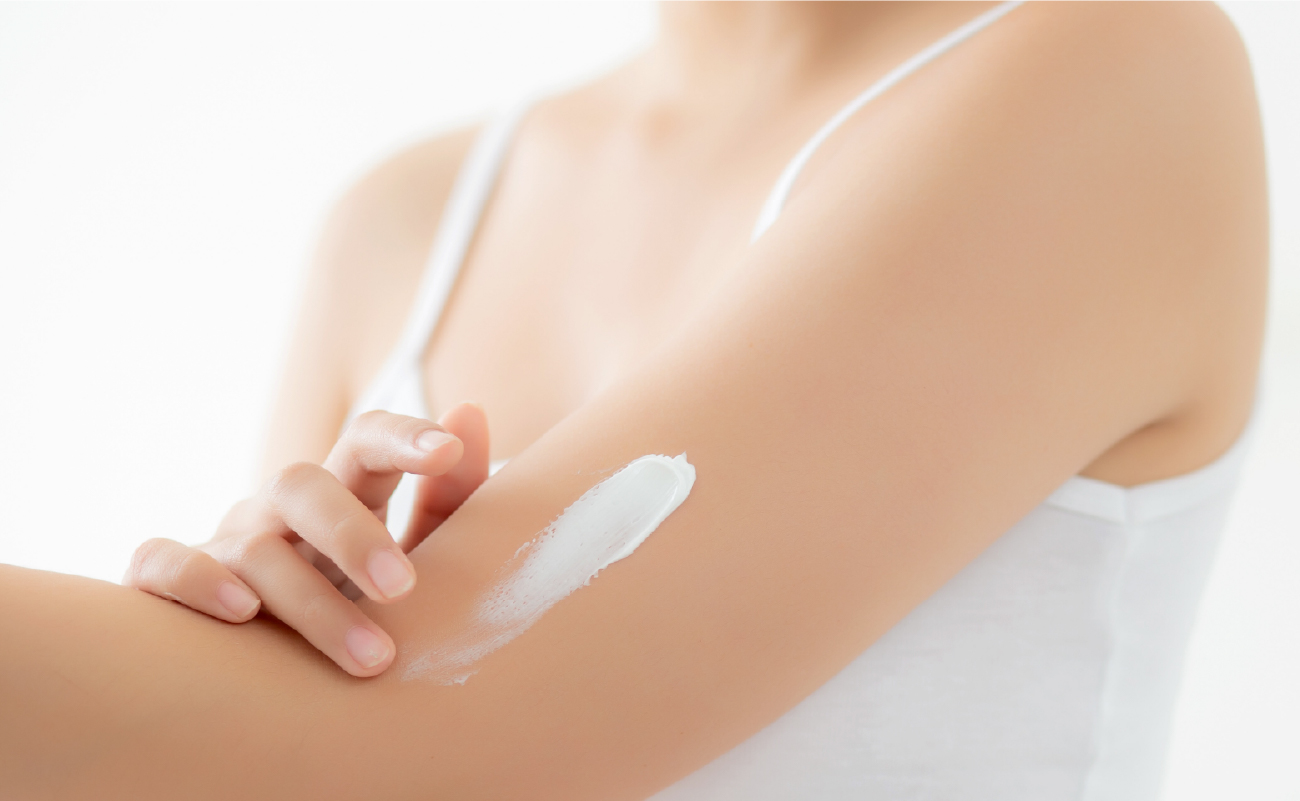
To improve sensitive skin, we can start by adjusting daily habits and nurturing the skin:
- Choose Suitable Skincare Products: Use gentle, non-irritating, specifically designed products for sensitive skin. Avoid products containing irritants such as fragrances, alcohol, and preservatives, focusing on moisturizing and soothing effects.
- Proper Cleansing Methods: Avoid strong cleansing products that strip the skin’s natural oils. Opt for pH-balanced, gentle cleansers, and wash your face with lukewarm water, as hot water can damage the skin barrier.
- Change Lifestyle: Maintain adequate sleep and a healthy diet, and consume foods rich in antioxidants, such as fresh vegetables and fruits. Avoid spicy and greasy foods.
- Regular Diagnosis: If symptoms persist or worsen, seek professional advice from a dermatologist. If necessary, conduct allergy tests to identify specific allergens and avoid exposure.
Relieve Irritative skin with Wasser® Dermatitis Cream 7%
Ectoin® repairs particles, which can form an efficient barrier to resist the invasion of foreign molecules. It is also added with ingredients such as “Symcalmin,” an oat extract developed in Germany. It is free of steroids, artificial colors, fragrances, and preservatives, suitable for long-term use. It is ideal for all age groups, including infants aged 28 days, and can be applied around the eyes without irritation, relieving itching.
If impairment of the skin condition occurs during treatment, or if the condition does not improve even after long-term treatment, discontinue treatment and consult your healthcare provider.
Consult your healthcare provider or pharmacist for advice before using this product if you are:
1. Pregnant or breastfeeding.
2. Infants or children.
